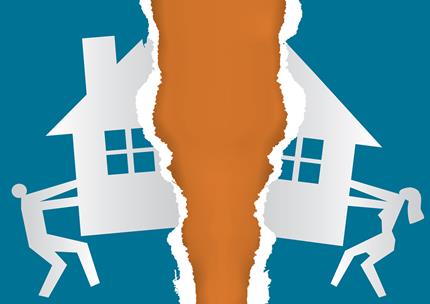
Nothing about divorce is easy, but—other than issues related to child custody—the division of assets is often the number one obstacle. During your marriage, you amassed property and assets (to one degree or another), and you definitely want to come out on the other side of your divorce with your share of those assets. Often, the more assets you have, the more complicated the issue becomes.
Property Distribution
If you and your divorcing spouse can come to a mutually acceptable division of property and assets, the court will likely accept that decision. Divorce being what it is, however, the division of assets often becomes a sticking point. If you can’t come to an agreement together—through your attorneys or via mediation—the court will divide your assets for you.
Connecticut: An Equitable Distribution State
Connecticut is both an equitable distribution state and all property state. This means the court will factor in all of the property that you hold jointly and separately into the division of property, and will divide the property in a way that the court deems equitable. Equitable should not be confused with equal distribution but instead refers to a distribution that the court deems fair.
Contributing Factors
In determining the equitable distribution of your assets, the court considers a variety of factors:
- The length of your marriage
- The cause of its dissolution
- Both of your ages
- How healthy each of you is
- Each of your occupations
- The amount and sources of each of your incomes
- Your separate employability
- Your separate vocational skills
- The total estate involved
- The liabilities and needs that each of you faces and your separate abilities to earn into the future
In other words, the court has a great deal of leeway when it comes to dividing your assets in a divorce. Importantly, though Connecticut is a no-fault divorce state, the courts can factor fault into the division of your property and assets.
Your Home
For many divorcing couples, the marital home is their largest asset. The division of the home often occurs in one of three ways:
- You sell the home outright and divide the proceeds between you both.
- One of you refinances the home and buys the other out.
- One of you—typically the custodial parent—remains in the family home with the children until a pre-specified date (until the youngest child finishes high school for example). After that date, you either sell the home and divide the proceeds, or one of you refinances and buys the other out.
The Fair Division of Assets Is Critical to Your Future. Consult an Experienced Connecticut Divorce Attorney Today!
Other than child custody, the division of assets is the most critical component of most divorces. Ensuring that your assets are divided fairly is crucial to your financial well-being into the future, and it’s far too important to leave to chance. The skilled divorce lawyers at the Law Offices of Piazza, Simmons & Grant, L.L.C., in Stamford, Connecticut, will fight to help protect your rights and your assets throughout the divorce process. Our divorce attorneys care about you and your case, so please contact or call us at (203) 348-2465 today.

